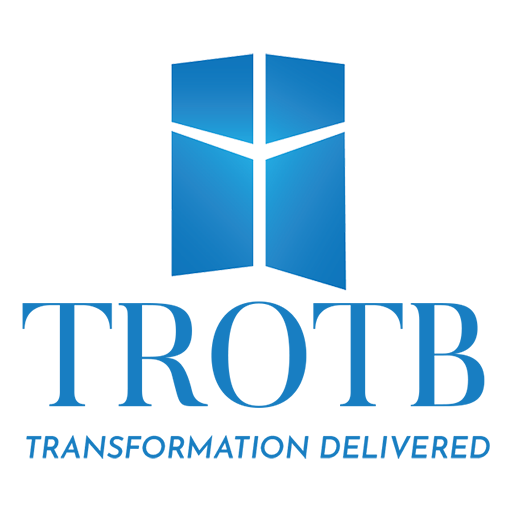Can a second man become a game-changer? You might be wondering who this second man is? What game is he trying to change? So let us begin with the question – who is a second man? In the world of leadership, the second man is called the sustainer of the vision. He agrees and walks along with the visionary to fulfill the vision that the visionary has. A lot of us presume the second man doesn1t have much to do other than obey the instructions of the visionary. Maybe that is something that we would have experienced o r seen. Maybe the impression that we have about a second man is more of a ‘yes man’ than an individual with a mind. So, is it true that the second man’s role is limited to compliance or is there something more? Let’s find out from the Scriptures. I can promise you after reading this you might even want to change your perspective about the second man.
You Can Be A Game Changer
Being the sustainer of the vision

The people of Israel found themselves in a tight spot when the Amalekites launched a surprise attack on them. Under the leadership of Moses, the Israelites had crossed the Red sea and walked into the barren land of Rephidim. They got thirsty and saw a miraculous provision of water from the rock. At that time, the Amalekites fell upon them, catching them unaware. This is the first battle that this group of slaves who left Egypt had to face. Moses asks Joshua to go and select men who could fight like warriors against the Amalekites (Exodus 17: 8 -13)
Who really were the Amalekites?
They were descendants of Esau (Genesis 36:12). Amalek was the grandson of Esau and they were inhabitants of the Negev Desert. They were the first to launch an ambush from behind against an already worn-out group of people who were being guided by the Lord by the pillar of fire at night and cloud by day.
“Remember what Amalek did to you along the way when you came out from Egypt, how he met you along the way and attacked you with all the stragglers at the rear when you were faint and weary; and he did not fear God.” (Deuteronomy 25: 17-18)
“Then the Lord said to Moses, ‘Write this in a book as a memorial and recite it to Joshua, that I will utterly blot out the memory of Amalek from under heaven'” (Exodus 17: 14). The Amalekites were an arch-enemies to the Israelites. God proclaims serious consequences on the whole nation of Amalekites for the barbaric act of attacking a brother at his weakest moment. They could have supported the passage of the Israelites through the desert and changed their historical narrative but unfortunately, they picked the wrong battle.
In the world of leadership, the second man is called the sustainer of the vision
The path to victory
Being slaves under Egypt, I’m assuming, the people of Israel probably were not trained in war. They knew how to make bricks from straw. They were an arch-enemy to the Israelites. Faced with a surprise attack, Moses is tested again at another level as a leader. He lays out a strategy to his deputy Joshua and asks him to select men who can fight this sly enemy. Joshua rises to the occasion and heads out to the battlefield. We don’t really know what weapons they had and how they fought. But Moses decided to go up to the mountain and hold up the rod of the Lord. When his hands were up the Israelites won, but when he got tired they started losing.
Let’s do an experiment, shall we try to keep our hands up in the air and time ourselves? My hands got tired by the 8th minute. How about you? Leadership is demanding and it will wear you out if you try to do it alone. For a moment let’s assume that Moses tried to do this alone. He would eventually tire out and Joshua would have to lose the battle. The battle was not won just because Moses could keep his hands up or even the battle brilliance of Joshua’s troops. Israelites triumphed over their enemies because Aaron and Hur stepped in. They rolled a stone and gave Moses a place to sit down and rest. Each shouldered Moses’ arms till sunset. Yes, till sunset! We are talking hours here. The battle depended on how long Aaron and Hur could steady Moses’ arms. They were the GAME CHANGERS and you can be too!
Have you ever tried to lift someone else’s arm up?
Your arm will get tired of holding someone else’s arm up. It’s not the most pleasant of tasks to undertake. But the victory is not only dependent on Moses who leads, the Joshua who fights but is also heavily dependent on the Aarons and Hurs who are in the role of supporting the leadership. The role of the support team or Second man is an often overlooked role. Yet the Bible records the names and families of those who stood and supported the vision and the leader.
Leadership is demanding and it will wear you out if you try to do it alone
When you support the leader, the team wins!
Aaron and Hur could have criticized Moses for not holding up his arms. They could have given their expert opinions on how the battle was being lost because of Moses and his inability to hold up his hands. Instead, they looked for a solution. A stone was available. They rolled up their sleeves and worked on moving the stone. They each took up one responsibility and focused on doing that well. Each one took one arm. They probably had to use both their arms to keep Moses’ arms up.
Sometimes we have far fetched expectations of the visionary or the leader. We often assume our leader would be always available for us whenever we call or even find solutions for all our problems. There is no doubt that leaders need to be there for their people and find solutions for their issues, yet it can get unrealistic at times. Like every other human, a leader has limitations, and they cannot always be available. They have the same amount of time as anyone would have and in that limited time, he or she has to make time for many others. That’s a pretty tough and relevant predicament for a leader.
Moreover, the closer we work with a leader, the more obvious their flaws and weaknesses will appear to us. The good news here is, as a second man you can be a game-changer. Work along with your leader every season, arrange a time to talk, build a relationship and try to get to know your leader before reaching conclusions. Seek the guidance of the Holy Spirit and take it up in prayer. The more we come to know our leader, the better we understand them as a person, who is with flaws but genuinely loves the Lord. And when we realize this, let us also learn to ask – “How can I support the leader? What responsibility can I shoulder? What one burden can I carry which will support the leader and eventually the vision? What is the most obvious task that I can perform? Is there a stone I can move?” Mind you, your leader can still have weaknesses but you as a second man can turn those weaknesses into strengths for the common good.
For example, if a second man finds his leader is not empathetic enough, without bad-mouthing or competing, he can be more empathetic. If the leader struggles to find time for other team members, the second man can step in to loosen his burden. The second man does not have the liberty to think like a follower but he needs to think like a leader.
When you build your part of the wall, the task finishes in record time!
Nehemiah, the cupbearer, took up the wall-building project. The Bible records the names of families that stepped up and finished their part of the work. It included people from the Levitical (priesthood) and all other walks of life – “The family of Hassenaah built Fish Gate. They put the beams in place and hung the doors, then they added metal bolts and wooden beams as locks. Meremoth, son of Uriah and grandson of Hakkoz, completed the next section of the wall. Meshullam, son of Berechiah and grandson of Meshezabel, rebuilt the next section, and Zadok son of Baana rebuilt the section beside that. The next section was to be repaired by the men of Tekoa, but their town leaders refused to do the hard work they were assigned.” (Nehemiah 3:3-6).
The passage also records that there were leaders who refused to do their part. However, the wall was completed in record time because people stepped up and did their part. The entire chapter is dedicated to recording the names of people and their contributions to the rebuilding of the wall. Many were probably doing this for the first time. They didn’t have the experience or expertise to do it. But they were willing to help in whatever way possible.
As we look ahead to the Vision 2030 – Discipling the nations – What is the one thing we can do to support this vision? You can be the second man in your department or a region. As a second man, how can you help your leader to attain the greater vision? If your leader is handling multiple responsibilities and is finding it difficult to draft a plan for your region, can you draft one?
I want to ask you, my family, what can you do as a family or as an individual? Can you contribute time to pray for this vision, or even plan a training programme in your region or be available as staff once a year for the event? There are so many opportunities available to serve in the different regions. What area would you like to serve? I still remember the early days when I used to serve in the hospitality department of our one month discipleship school – Agape Discipleship School.
The Bible commands us to be hospitable. I’m not the most hospitable by nature but being on the hospitality team definitely stretched that area. Let’s not seek the pulpit opportunities alone, let’s learn to serve behind the scenes. When each of us does our part, we accelerate the vision!
When we stay in the covenant, our destiny is different.
“Then everyone who was in distress, and everyone who was in debt, and everyone who was discontented gathered to him; and he became captain over them. Now there were about four hundred men with him.” (1 Samuel 22:2) David began his leadership journey in the cave of Adullam where he led a group of men who were depressed, discontent and in debt. Not the most elite team to start with, however, their trajectory shifted and these same men were later referred to as, ‘David’s Mighty Men’.They spent years in the wilderness running from Saul. As they stayed close to David, their destiny changed. They learnt to fight like warriors. They are noted to have been good swordsmen, spear throwers and skilled in battle. They faced unparalleled odds against the might of the entire trained army of Israel, who were out hunting for these amateurs. The battles challenged them, the victories strengthened them. They became a formidable force that eventually conquered entire territories around them. Their ending was far better than their beginnings.
Joab however had a different end. He did not catch the heart of the leader and was constantly looking for ways to strengthen his own position rather than the Kingdom. He killed people better than him to avoid competition. His bitter end was due to his inability to see the big picture and the covenant heart of his leader David. Being part of the family, can we celebrate those who are more gifted and talented than us? Can we look for ways to train and improve our skills as we progress?
The people who support the leader and stand by the vision are the real game changers!
In this year of Revival and Restoration, leadership is important to steward and sustain a revival. Every level of leadership will have its challenges. The people who support the leader and stand by the vision are the real Game changers! So let us all do what we can with what we have and be a Game Changer for Revival & Restoration to manifest in every aspect of our lives.
© Copyright 2022 TROTB
Designed by TROTB Media


